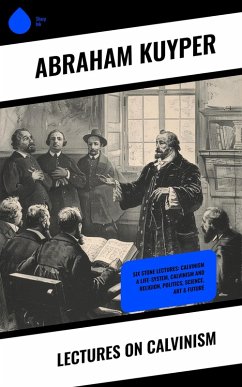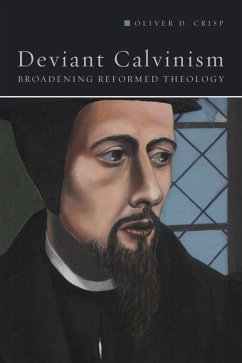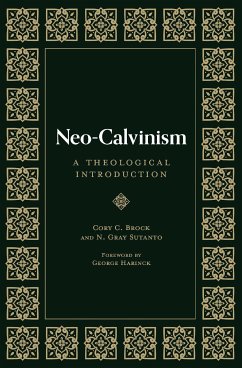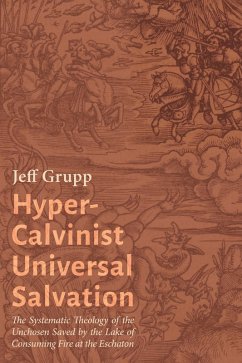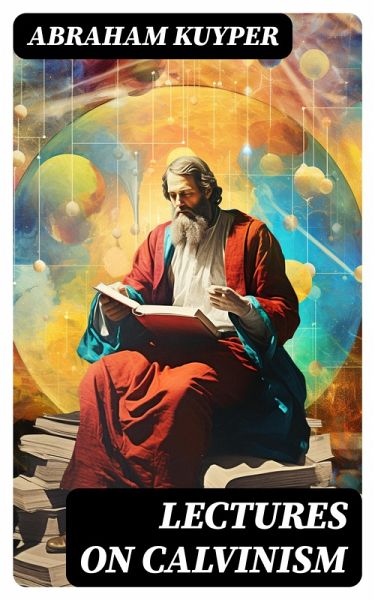
Lectures on Calvinism (eBook, ePUB)
Six Stone Lectures: Calvinism a Life-System, Calvinism and Religion, Politics, Science, Art & Future

PAYBACK Punkte
0 °P sammeln!
In "Lectures on Calvinism," Abraham Kuyper presents a profound exploration of the theological, historical, and cultural implications of Calvinist thought. Structured into distinct lectures, Kuyper meticulously argues for the relevance of Calvinism in shaping modern society and its institutions. His eloquent prose weaves complex theological concepts with practical applications, offering readers a robust defense of Calvinism as a comprehensive worldview. The work is positioned within the broader context of late 19th-century Protestant thought, engaging with contemporary debates on the intersecti...
In "Lectures on Calvinism," Abraham Kuyper presents a profound exploration of the theological, historical, and cultural implications of Calvinist thought. Structured into distinct lectures, Kuyper meticulously argues for the relevance of Calvinism in shaping modern society and its institutions. His eloquent prose weaves complex theological concepts with practical applications, offering readers a robust defense of Calvinism as a comprehensive worldview. The work is positioned within the broader context of late 19th-century Protestant thought, engaging with contemporary debates on the intersections of faith, politics, and culture. Abraham Kuyper, a prominent Dutch theologian, statesman, and founder of the Vrije Universiteit Amsterdam, drew from his extensive academic background and personal convictions in writing this seminal work. His experiences in ecclesiastical life and his involvement in public affairs informed his perspectives, allowing him to articulate a nuanced understanding of the transformative power of Calvinism. Kuyper's commitment to a distinctively Reformed approach is evident, as he sought to reclaim the church's role in shaping societal values and institutions. This book is essential for scholars, theologians, and anyone interested in the historical impact of Calvinist thought on contemporary culture. Kuyper's penetrating insights provide a fresh perspective on the implications of faith in public life, making "Lectures on Calvinism" a pivotal read for those seeking to understand the enduring legacy of this theological tradition.
Dieser Download kann aus rechtlichen Gründen nur mit Rechnungsadresse in A, B, BG, CY, CZ, D, DK, EW, E, FIN, F, GR, H, IRL, I, LT, L, LR, M, NL, PL, P, R, S, SLO, SK ausgeliefert werden.




